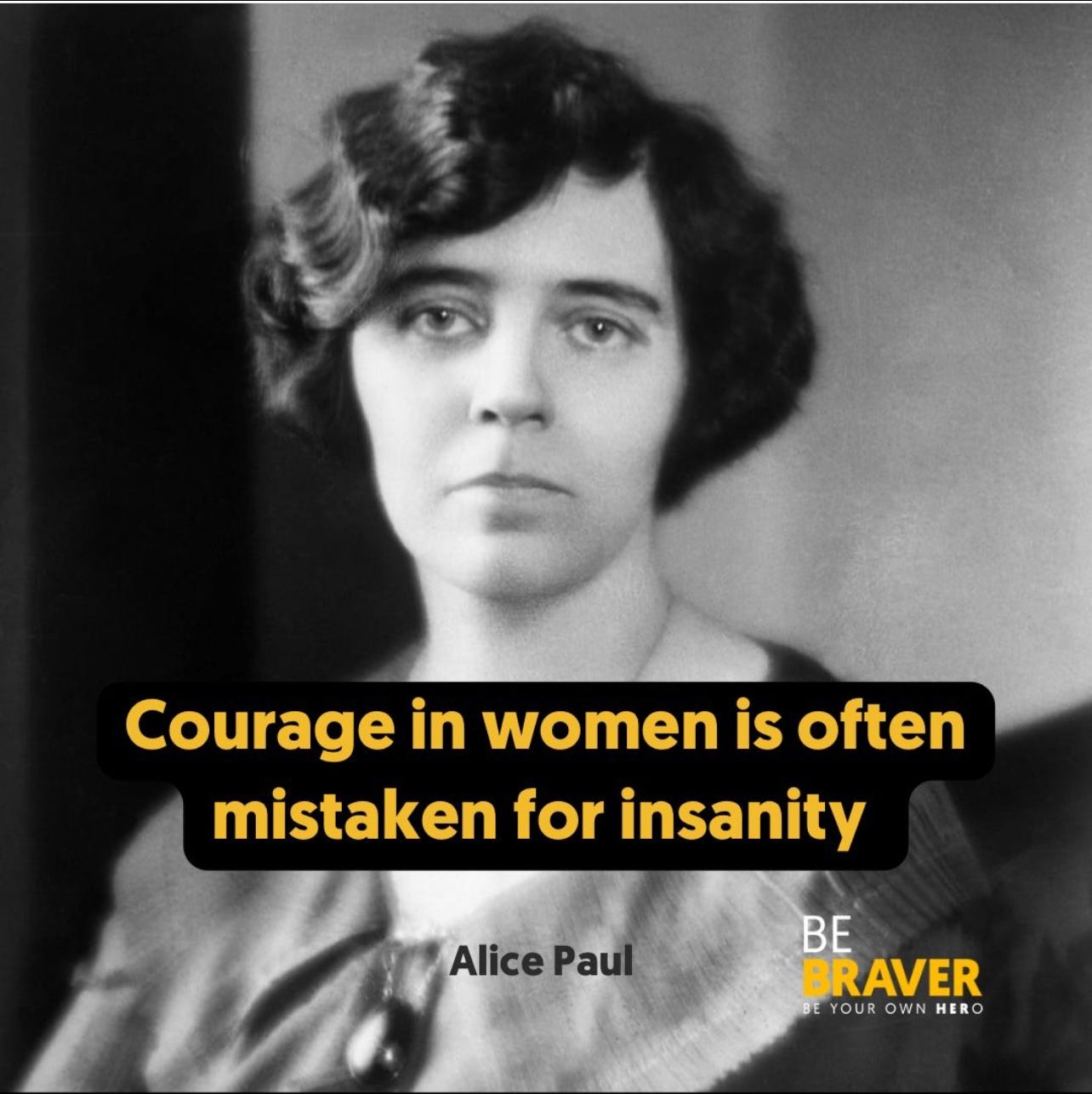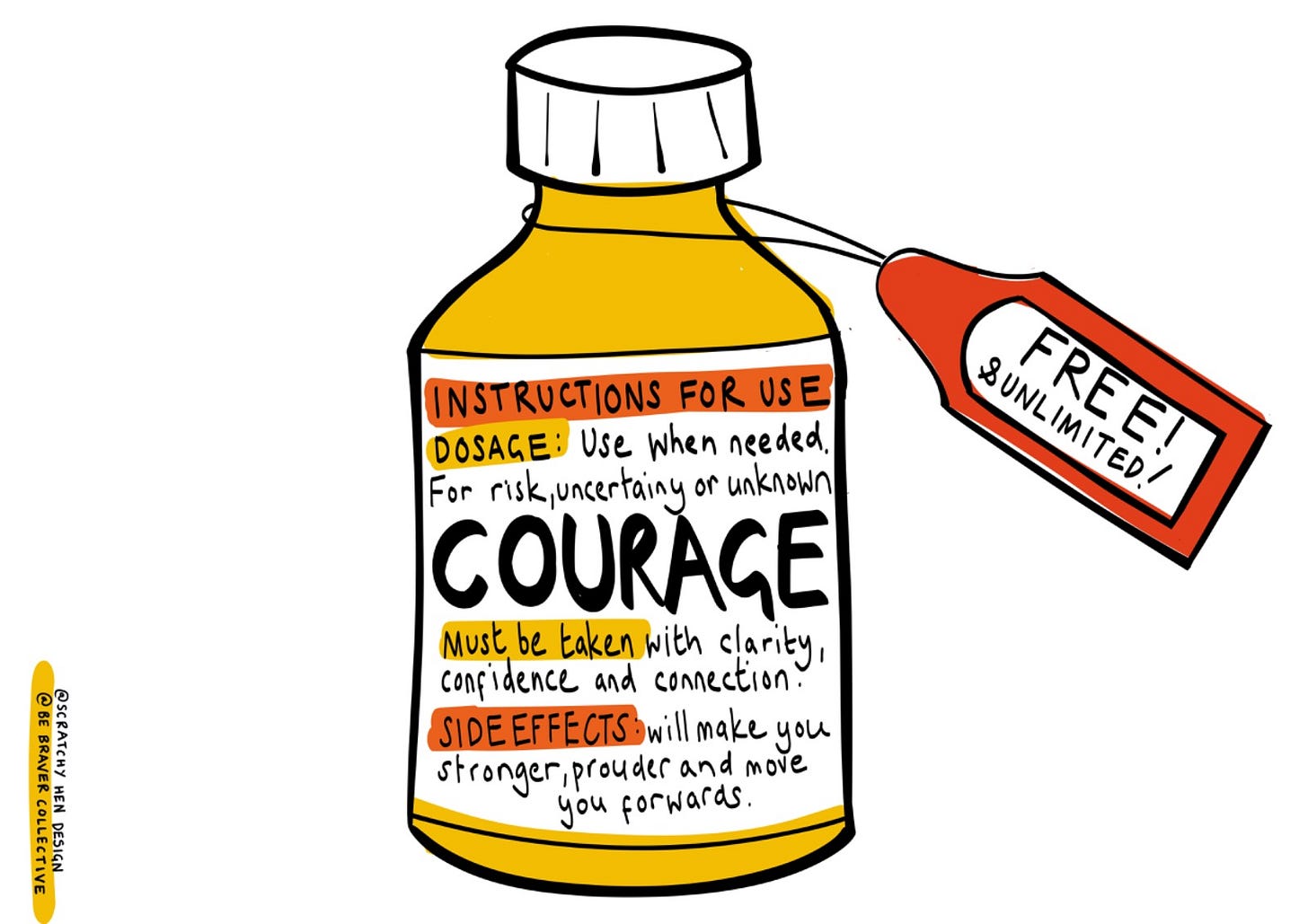Challenge power as a woman?
The methodology is predictable: you'll be labelled mad, sad, or bad rather than heard.
You have finally made it to the SLT meeting. Your boss has given you feedback to take your seat at the table. Be visible. Be heard. So when the CEO announces a decision that will harm your team, and the business, you speak up. Calmly. Clearly. Preparation has paid off.
For a moment, you surprise yourself with your own eloquence. The discomfort of being the lone voice dissolves into something that feels like... yourself. Finally.
Then silence. The CEO doesn't like the challenge. You persist, because the facts haven't changed. Your boss, who you were convinced had your back, suddenly finds his shoes fascinating.
You are now the only voice in the room speaking truth to power.
Later, your boss delivers timely feedback, because that's the culture here. All about open feedback. You were "too much." You needed to "read the room." Too intense. Too emotional. Too... brave. They didn't say that last part, but you both heard it.
Maybe you've been called difficult, irrational, too opinionated for simply standing your ground.
You're not alone. My clients tell me they've never felt more alone in a room full of people when they share these stories. But when we share them in group coaching settings, you see the bigger picture: you were never alone. Your courage stands on the shoulders of giants. These stories we share inspire courage in others. When we make invisible courage visible, our collective courage rises.
Women's courage has never been a random trait. It's been a disciplined, hard-won adaptation to structures designed to exclude us. We'd rather pathologise women's behaviour than examine the systems that make that behaviour necessary. Call her sanity into question.
In 1917, Alice Paul led a silent protest outside the White House for women's right to vote. She was arrested, force-fed, and labelled mentally ill. Her real "condition"? Unrelenting courage in a world that couldn't imagine women having any at all.
The system was so powerful it prevented Alice Paul from even recognising her own courage. As she told interviewer Amelia Fry years later:
"Courage was not something we talked about, we just acted... we had to risk everything because women had nothing."
The system that forces women to be courageous also ensures we never recognise ourselves as brave. We're too busy surviving to notice we're actually thriving against impossible odds. Alice Paul didn't identify as brave. She just did brave things. Yet that distinction changes everything.
Many of us don't think of ourselves as courageous. We see it in other people but not in ourselves. Recently, in a podcast recording with
, we found ourselves acknowledging that neither of us especially identifies as being brave or courageous women. But we both recognised we do brave things and make courageous decisions.Does that make a difference?
I think so. The difference between "I am brave" and "I can do brave things" is one of identity versus agency. One locks you into a fixed state - you either are or aren't. The other gives you choice in every moment.
Knowing we can choose courage, knowing we've been brave before, is the difference between having agency and feeling powerless. It's the difference between thinking I am a failure and seeing how you learned.
When you can see and say "I was brave," it immediately gives you the confidence to know you can be braver. You already have been brave, so you can do it again. It's not about becoming someone new - it's about recognising who you already are, how far you have come.
Recognising you can intentionally target your courage like Artemis with her bow and arrow means a world of hope, opportunity, possibility, and change becomes possible. We find more joy. We find more freedom. We claim power and agency. We resist, insist, persist and enlist.
The real power in choosing courage isn't in the identity it creates - it's in its capacity to create change. To shape who you become and how you experience living, leading, and caring. You can refuse to see yourself as a brave person and still do brave things. You can think of yourself as brave and still, in practice, be a coward.
Which matters more?
The suffragette phrase "deeds not words" has followed me through all my courage work. But in our psychologically-informed age, I think it's evolved to "deeds AND words".
If we understand words as the internal decisions and deeds as the external actions. Courage is the decision you make in your head; bravery is what you do with your body - what is seen and observed. Both matter. A decision without action can be just a good intention. And sometimes a courageous decision needs no action. Brave action without the conscious decision is just reaction. Yet with intention and conscious consideration, and then action, bravery becomes the deed.
The suffragettes had both, but they only got credit for one.
And when women practise courage, we're not going mad. We're going forward.
The question isn't whether you'll be brave. The question is: When you are, will you know how to choose courage in a way that builds your power rather than drains it, even when bad bosses don't support you and systems push back
Because somewhere right now, a woman is sitting in a meeting, finding her voice, and choosing to speak truth to power. She's not crazy. She's not too much. She's walking in the footsteps of Alice Paul, carrying forward a legacy of courage that has never been about fearlessness or blind action.
It's about intelligent risk assessment and timing smart actions within systems designed to silence you.
Questions for the courageous
When was the last time you did something that was brave for you? Who did you tell?
When will you next need to make a courageous decision or be brave?
How will you prepare for before, during and after?
Ready to lead with intentional courage?
Don’t just read about courageous leadership - practice it.
Always happy to hop on a call to discuss ways to help build courageous practices and behaviours in you, your team or your organisation.











I called out bullying behaviour by someone who was tasked with clamping down on bulling behaviour. He told me I had misunderstood his behaviour and he wasn't out of line, when everyone in the room saw that he was. They all looked down at their feet when I looked him in the eye and knew I was right. It did not help my career in anyway, and I only had enough courage to do this once I was fairly senior and probably subconsciously ready to leave, which I did when the next redundancy 'opportunity' came up. Was speaking up in my or others interest? Not really sure, but I was fed up of behaviour like it. Did his career continue to prosper? Yes.
‘The system that forces women to be courageous also ensures we never recognise ourselves as brave. We're too busy surviving to notice we're actually thriving against impossible odds.’ So true!!